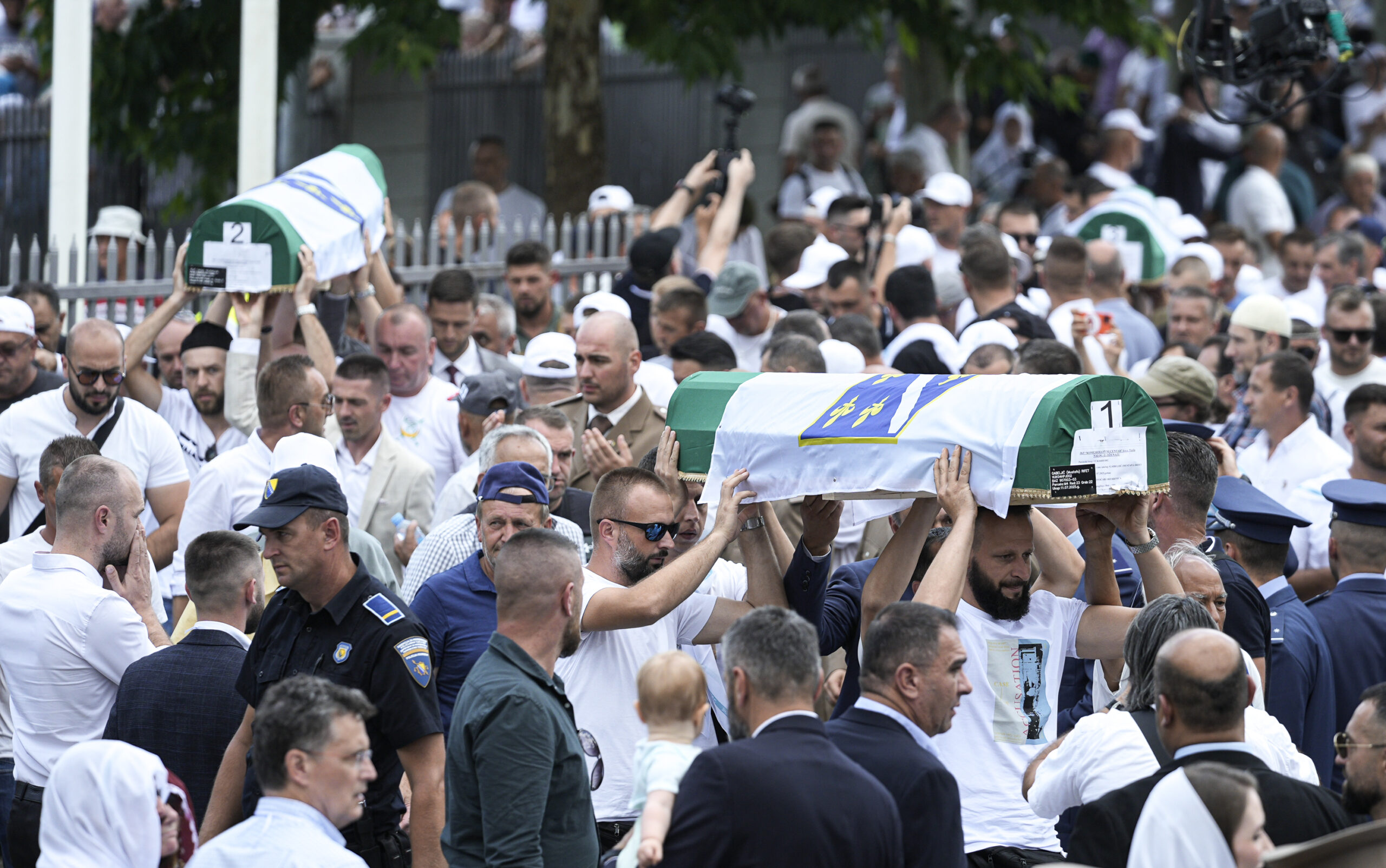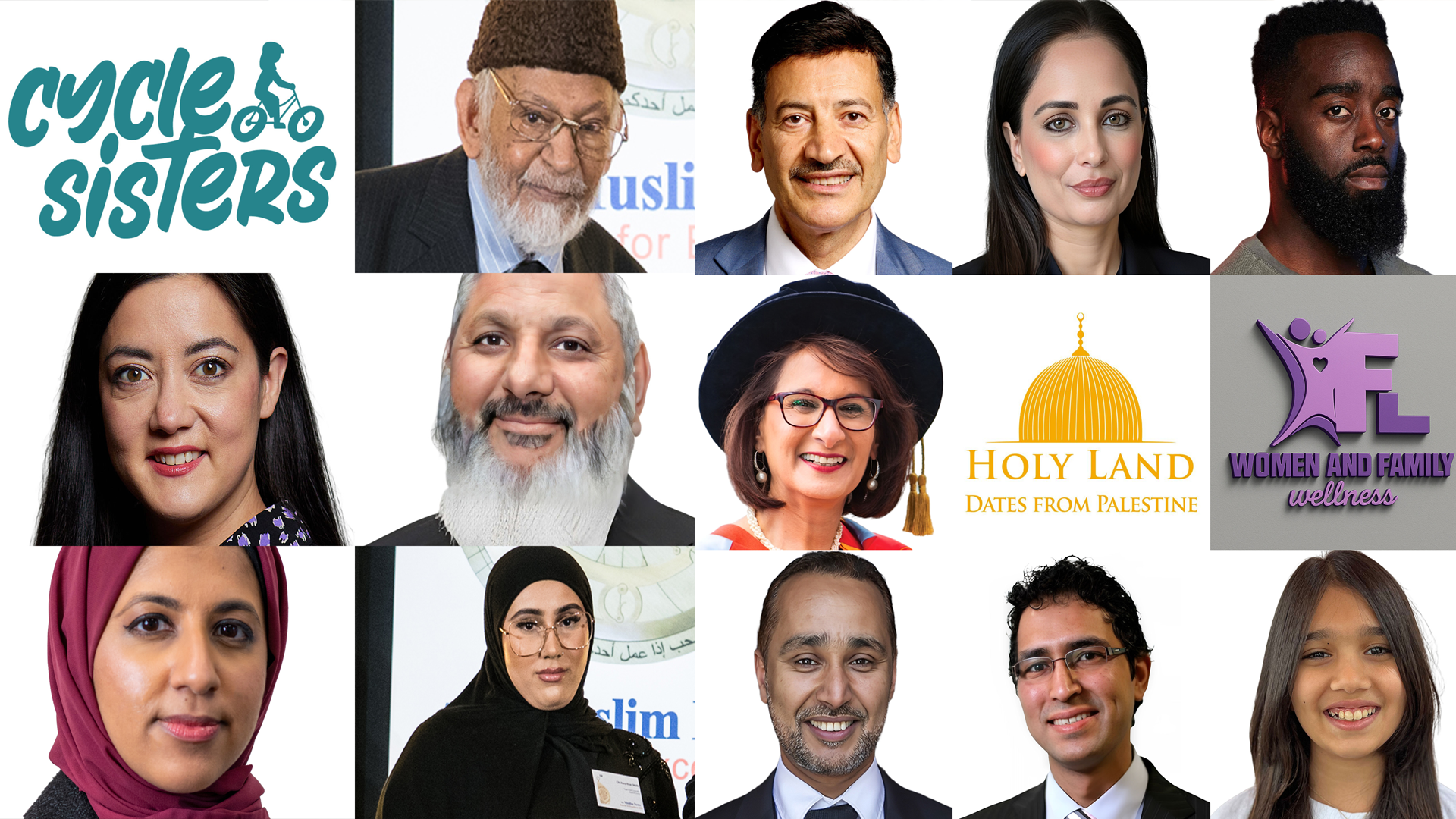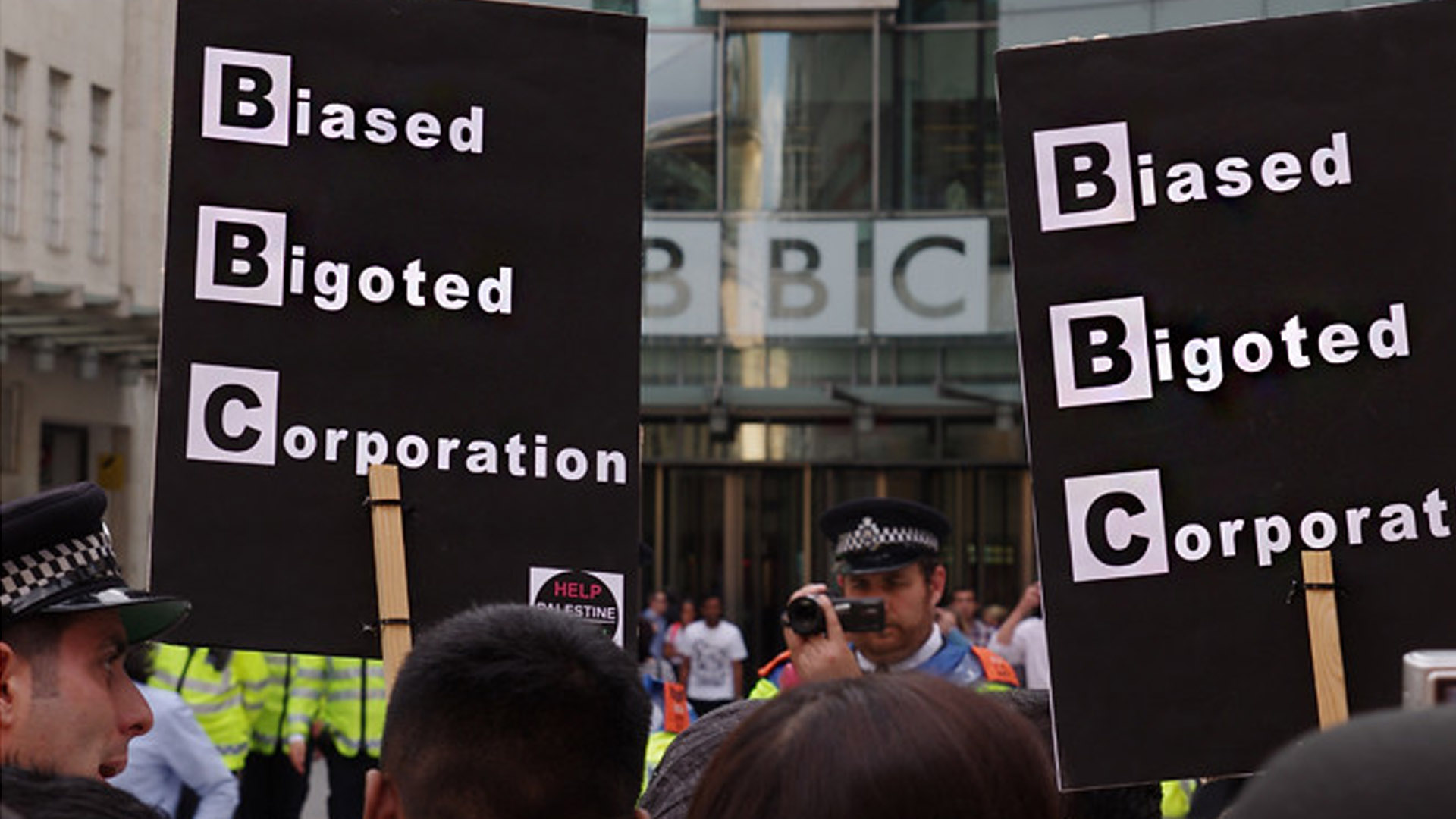
Nadine Osman
Thousands of mourners gathered in Srebrenica on July 11 to solemnly commemorate the 30th anniversary of the 1995 genocide, in which more than 8,000 Bosniak Muslim men and boys were systematically murdered by Bosnian Christian Serb forces. The ceremonies, held at the Srebrenica-Potočari Memorial Centre, served as a powerful reminder of one of Europe’s darkest atrocities since the Second World War.
The day began with the burial of seven newly identified victims at the Memorial Cemetery. Among them were two 19-year-old men, Admir Borak and Emir Malagić, whose remains were recovered from separate mass graves near Zvornik. Admir’s father, Mehmed Borak, spoke through tears, recalling his son’s last words: “He wanted to live, to build a future, but was taken too soon.” Emir Malagić’s cousin, Amira, described the decades of painful searching, saying, “This burial gives us peace, but the scars will never fade.”
Also laid to rest was 36-year-old mother Aida Hasanović, whose remains were found in the Kamenica site near Bratunac, underscoring that women, though fewer in number, were also victims of the brutal ethnic cleansing. Aida’s sister, Selma Hasanović, remembered her as a devoted mother and sister, lamenting the cruel loss: “She was everything to us. Even in those dark days, she tried to protect her family.”
The other victims included men aged between their late teens and early forties, identified through ongoing forensic work by the International Commission on Missing Persons (ICMP). Among them were 41-year-old Hasib Kovačević, whose remains were found in a mass grave in Pilica, and 22-year-old Dževad Mehmedović from Srebrenica town centre. Each identification results from meticulous DNA testing and detective work, providing vital closure to families decades after the massacre.
Survivors and relatives laid flowers at the memorial, which bears the names of more than 6,750 victims of the July 1995 massacre, honouring their memory in silence and sorrow. Eldar Husić, a survivor who lost his entire family that day, reflected, “Every year, we come here not just to mourn, but to remind the world that justice must never be forgotten.”
The commemorations also marked the conclusion of the annual Peace March, a symbolic three-day trek retracing the 100–120 km escape route taken by thousands of Bosniak Muslims fleeing the genocide through dense forests and rough terrain. This year, between 6,000 and 7,000 people participated, including descendants of survivors and international activists, culminating in emotional reunions and tributes at the cemetery. At the former car battery factory in Potočari — once a UN base during the genocide and now a memorial site — attendees held prayers and heard speeches emphasising the enduring importance of remembrance, justice, and truth. Imam Fehim Dautović delivered a heartfelt sermon calling for peace and reconciliation, while warning against denial and revisionism.
The memorial ceremony was attended by several prominent dignitaries. Among them were Denis Bećirović, the Bosniak member of the Presidency of Bosnia and Herzegovina; Munira Subašić, President of the Mothers of Srebrenica Association; European Council President António Costa; Sophie, Duchess of Edinburgh, representing the British Royal Family; and Caspar Veldkamp, Dutch Foreign Minister. Their presence underscored the international recognition of the genocide’s gravity and the ongoing call for accountability and peace.
European Council President António Costa declared, “There is no place in Europe—or anywhere—for denial, revisionism, or the glorification of those responsible for such horrors. Denying these crimes only poisons our future.” Costa reaffirmed the EU’s commitment to justice and remembrance and reiterated the bloc’s support for Bosnia and Herzegovina’s path toward EU membership, stating, “We believe Bosnia and Herzegovina belongs in the European Union.”
In a message marking the anniversary, King Charles expressed his profound sorrow for the tragedy and paid tribute to the extraordinary resilience of those affected, stating that their courage and dignity are “a lesson to us all.” He urged that “there can be no shared future when the events of the past are denied or forgotten,” calling on the international community to redouble efforts “to ensure a peaceful, stable future for all the citizens of Bosnia and Herzegovina.”
Looking back, in July 1995, Bosnian Serb forces commanded by General Ratko Mladić overran the UN-declared “safe area” of Srebrenica. Despite the presence of Dutch peacekeepers, approximately 2,000 men and boys were executed on July 11 alone, with thousands more killed in the following days as they attempted to flee through surrounding forests. To date, victims’ remains have been found in over 570 mass graves across Bosnia and Herzegovina.
On the eve of the anniversary, Turkish President Recep Tayyip Erdoğan issued a strongly worded video statement condemning genocide denial and the glorification of war criminals. Erdoğan drew a stark parallel between the international community’s failure to act during the Srebrenica genocide and its current response to the war in Gaza, stating, “The international community remained silent on Srebrenica, and today it is merely watching the oppression in Palestine.” He added, “What is happening in Gaza shows the world has yet to learn the necessary lessons from Srebrenica.” Erdoğan reaffirmed Türkiye’s steadfast support for Bosnia and Herzegovina’s sovereignty and constitutional order, warning that those responsible for crimes in Gaza — like those in Srebrenica — would eventually be held accountable before law and history.
Photo: Mourners gather for the funeral of seven newly identified victims of the 1995 genocide, laid to rest at the Potocari Memorial Cemetery in Srebrenica, Bosnia and Herzegovina, on July 11, 2025. The victims were among thousands killed by Bosnian Serb forces during the Srebrenica massacre — the worst atrocity on European soil since World War II. (Credit: Samır Jordamovıc/AA)


